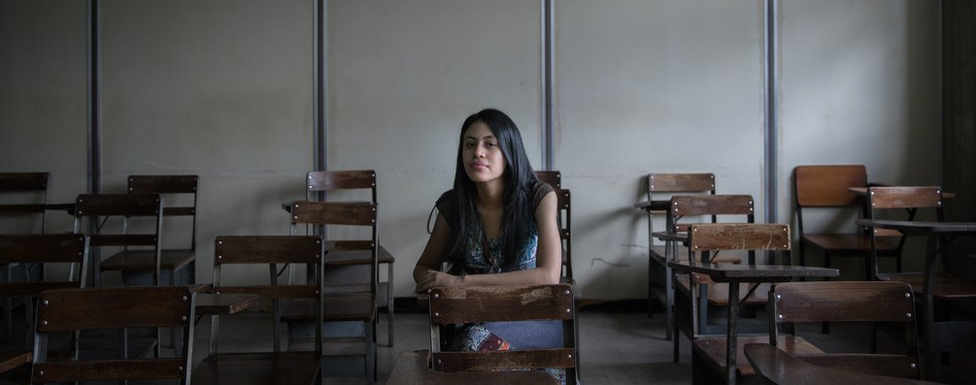Angela Villarreal is 24 years old and comes from a professional middle-class family from a satellite city in Caracas.
It is not easy for her to be a Chavista now in Venezuela.
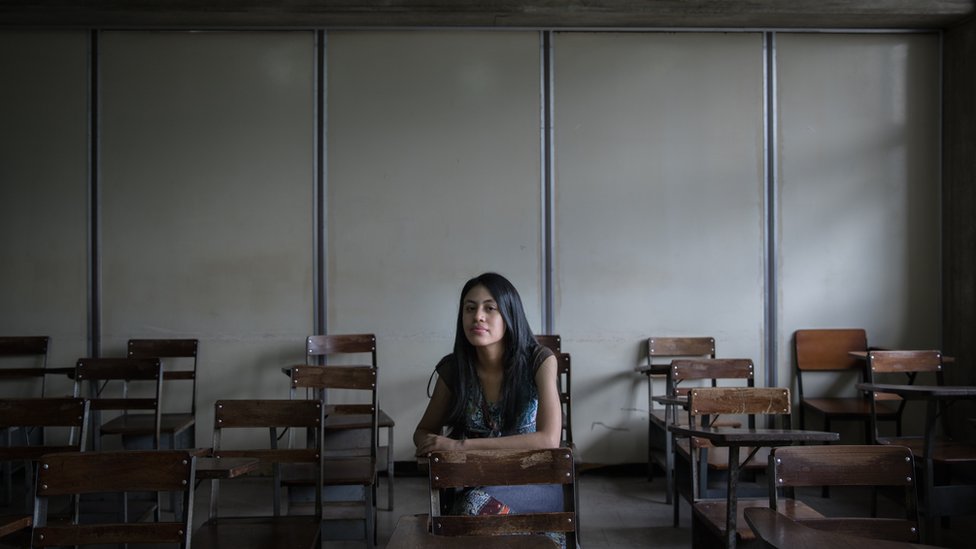
However, Angela Villarreal, 24, remains firm in her ideas despite the economic crisis the country is experiencing and the accusations of corruption and human rights violations against the government of Nicolás Maduro.
She lives in Guatire, a city 45 minutes from Caracas, with her parents. Her mother is a Chavista; her father not. She is about to finish her studies in sociology, is a member of the governing party (Partido Socialista Unido de Venezuela (PSUV) – United Socialist Party of Venezuela -and works in a public institution.
In a moment of intense political and institutional crisis in the country since Juan Guaidó proclaimed himself claimed “interim president” on January 23, Villarreal explains her reasons.
This is her testimony.
The current crisis
I feel that the real enemy of Chavismo is Chavismo himself. We do not have anyone who can be organized electorally to counteract us. I feel that if the solution to the problem that exists now is electoral, we would be successful, even if they set the rules and change the authorities of the Consejo Nacional Electoral (CNE) – National Electoral Council. I would accept it.
Yes, I think we would win even in an open election with all the candidates and parties. Internationally many do not understand that.
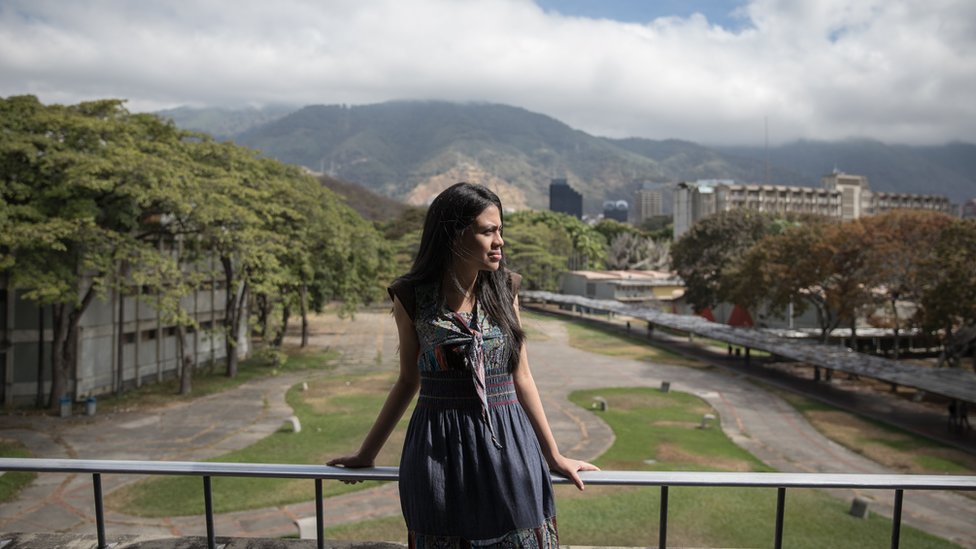
It would cost them (the opposition) to organize the discontent of their people and capitalize on it. And the Chavistas are close, we’re all in line. We choose a candidate and that is it. The elections are won with organization and I guarantee that there is chama (chica) – girl – like me in every municipality of the country. I do not know if the opposition has it.
Chavismo culturally transformed Venezuelan society. I’m not here to debate whether it was for good or bad. These gentlemen (of the opposition) do not understand the codes of the country. With the problem of inflation, with the problem to acquire food, medicines, it is not justified that you call a march and ignore the president and that you can go out because the country is calm and the message does not reach most of the people.
The Maduro government has a disconnection, but the opposition also.

Economic deterioration and discontent
There is a lot of frustration. Many people have turned their backs on Chavismo. More than adepts, Chavismo has lost emotion. There are people who say: “I’m a Chavista, but I’m sorry to say so.”
The migration phenomenon, the many people that are leaving, may be an answer to that. People who no longer believe in Chavismo and feel disappointed, but more than against, decide that they do not care about anything and leave the country sad. I leave everything and I lose everything.
The battle against the Asamblea Nacional (National Assembly) – controlled by the opposition- and the presidential elections, in which the majority of the opposition did not participate
Hugo Chávez what he does is to bring to politics the social polarization that already existed. Differences are necessary in any democracy. For me, the problem is that the opposition abandoned politics, and today Nicolás Maduro does not have any opposition.
We have thousands of problems, we are discussing archaic things and we do not even get to discussing democratic issues. The society in the first world is discussing abortion, about the rights of women.
We did not get there because some men forgot about politics. In 2015 some said, “let’s go take out that crazy one in Miraflores”.
In 2017 Maduro proposed a National Constituent Assembly (Asamblea Nacional Constituyente) and they did not participate. They decided to leave a void and in politics, there are no voids.
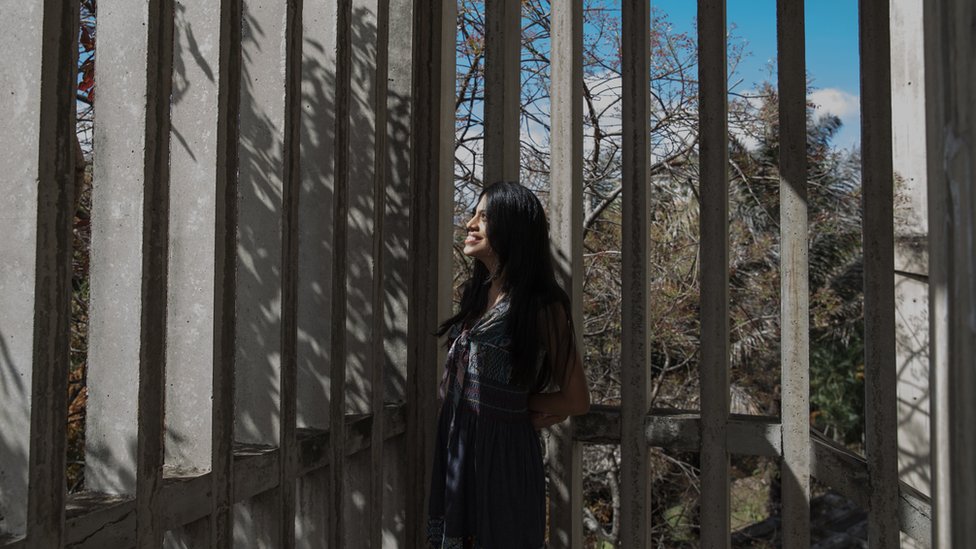
Accusations to the government of violations of human rights, torture and extrajudicial killings
There are procedures open to the National Guard (Guardia Nacional), but I feel that these processes remain entangled in the historical procedural delays of the Venezuelan judicial system.
I do not believe that torture is systematic or State policy.
The murders of chamos (boys) in the slums by the security forces? I do not believe the current. It happened in Syria, in Iraq. The current problem I feel it exists in the press, because I do not see it on the streets. I move about in Caracas from one place to another and I feel that it is not real.
In some neighborhoods, the government has had for years a terrible problem with issues such as drug trafficking, corruption, etc.
In this atmosphere of anxiety, I feel that it is the underworld that is winning. And that is a problem not solved by Chavismo that thought that generating more social access would reduce violence. It did not happen, it even grew. There are areas in which it is as if the State does not govern.
Groups of armed civilians, called collectives, in defense of Chavismo
I will not deny that they exist. Internationally they do not understand where they come from. I’m not justifying them, I do not think that to be in politics you need weapons. These people have used weapons since February 27, 1989 (the “Caracazo”, as the state’s repression against a popular protest is known). It is the Venezuelan way of politics. All of Caracas has combatant parishes. It is a defense process.
I do not accept that they come to tell me how I have to organize myself. That’s why I do not dare to enter the barrio (neighborhood) 23 de Enero (bastion of Chavez collectives) to tell ‘fulanito’ (so-and-so) whatnot, because perhaps without the fulanito, that parish has no order. You have to understand Venezuela.
Although they sold us the idea that we are a perfect democracy and that in the oil bonanza we would reach tremendous economic stability, we have historical debts to settle. Contraband at the border, the overvaluation of the currency are not new issues. We have a lot of historical baggage.
But if they ask me why I am a Chavista, it is because I feel that it is the only thing that exists politically.
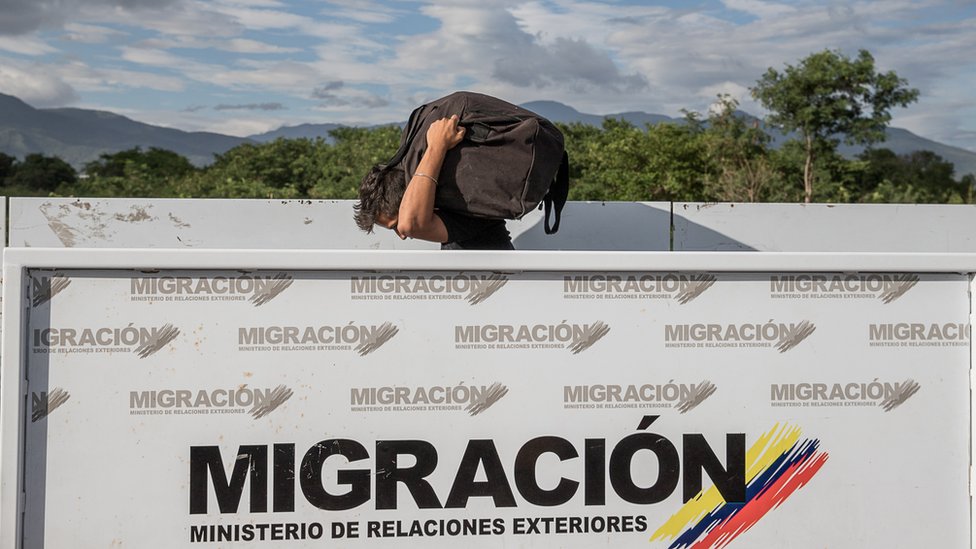
The corruption in the State and the denunciations against high positions that break with Chavismo
One cannot wait for someone to turn and say what is or what is not. We must go towards greater transparency in our processes because its lack denies legitimacy.
Corruption bothers us right now because there is less money. But if before there was more money, there was also more corruption. Now we see it (the corruption) because we do not have money.
In these last 20 years in the PDVSA (the state oil company) there was corruption, but there was also public education and it was free.
Why am I Chavista
I feel that they are people like me, people who respect me. I can post anything on my blog and they do not attack me for that. Beyond conflicts and problems we have a dream, a clear idea of a country.
I always liked politics and they (the Chavistas) were the first that offered me to participate in politics in high school. In University I found very intolerant people. I think if I had found more open opponents, I would not be in Chavismo.
I consider myself to the left. Not of a Marxist, socialist left. I believe in the public. I am from a left very different from Chavismo, but I feel that Chavismo is what most like me.
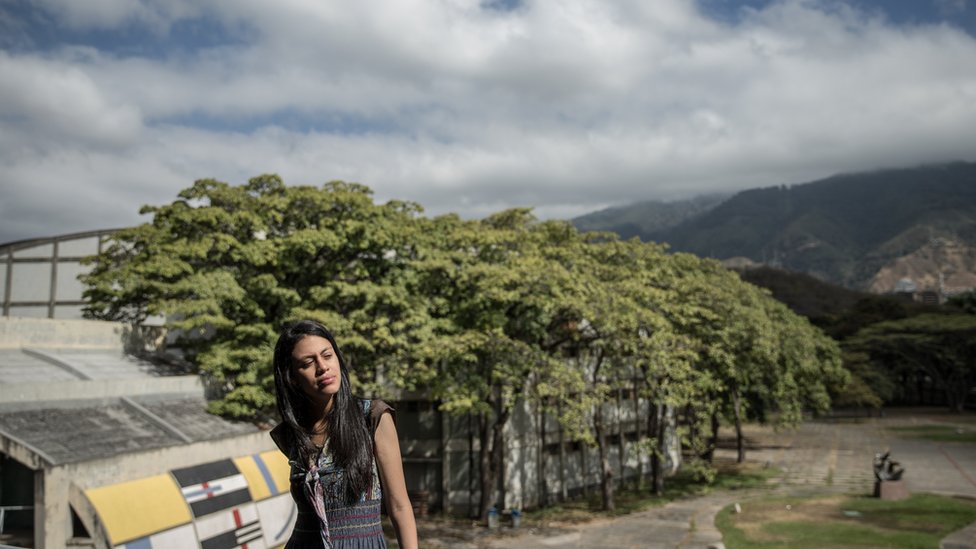
The criticism of Chavismo
I feel that Chavismo is monolithic, does not accept heterogeneity (diversity). That is where it has gotten tired. Chavismo, for example, it sees only one way of being young. When you listen to the presidential addresses, the young is the guy – chamo – who works for the homeland. Young people do not necessarily have to work for their homeland.
It is going to be a very big dilemma for Nicolás Maduro and all the Chavistas what my generation will feel in three years’ time.
Chávez told my generation that it was a golden generation. He created many universities and there are many who studied and prepared and will at 25, like me, will want to have a car, because, as in any other country in the world, if I am a professional and I am good at what I do, my salary allows me to have a car.
And now the salaries are not even enough for the basic food basket (cesta básica).
Chavismo is very conservative in family life. I hate that. There is no other way of being a woman other than being a mother.
If you are progressive or of the left, you have to fight to change that. It is the political force with the greatest political participation of women, but at the same time, it makes plans for you to only to be a mother.
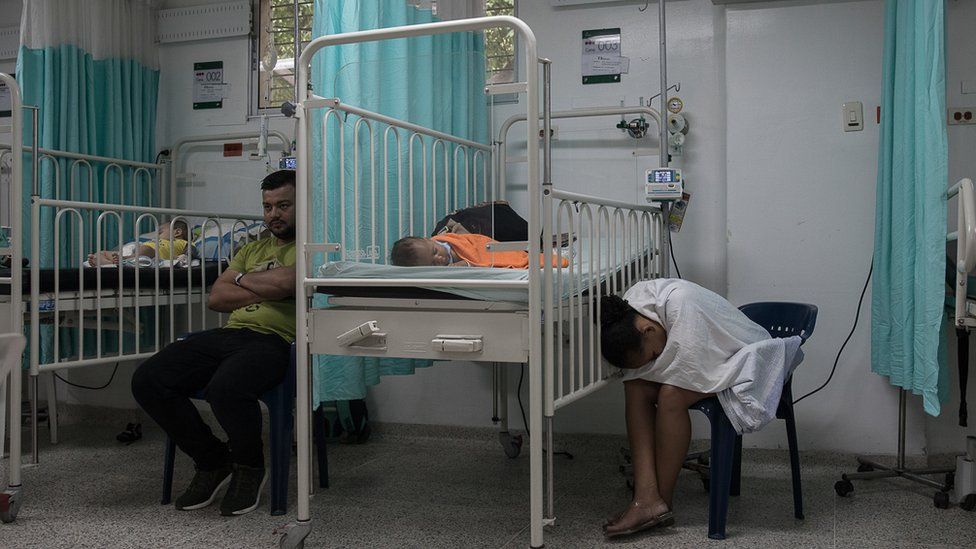
The future of Chavismo
In the opposition, there are very intolerant people. It is not that we are the good ones and they are the bad ones. Chavismo is a reinterpretation of populism. It has been difficult for them (the opposition) to understand it. Chávez could only beat the Adecos (the AD party, which dominated politics in Venezuela before Chávez) the day he understood them.
Personal conflicts for being a Chavista
I have had members of my own family who have wanted me to die because they say I support a dictatorship. I am not marginal, idiot, ugly or plugged in, as they say of the Chavistas.
In college, it was very hard. I do not have a problem with someone with adverse ideas, but violence bothers me. Why can’t we understand each other?
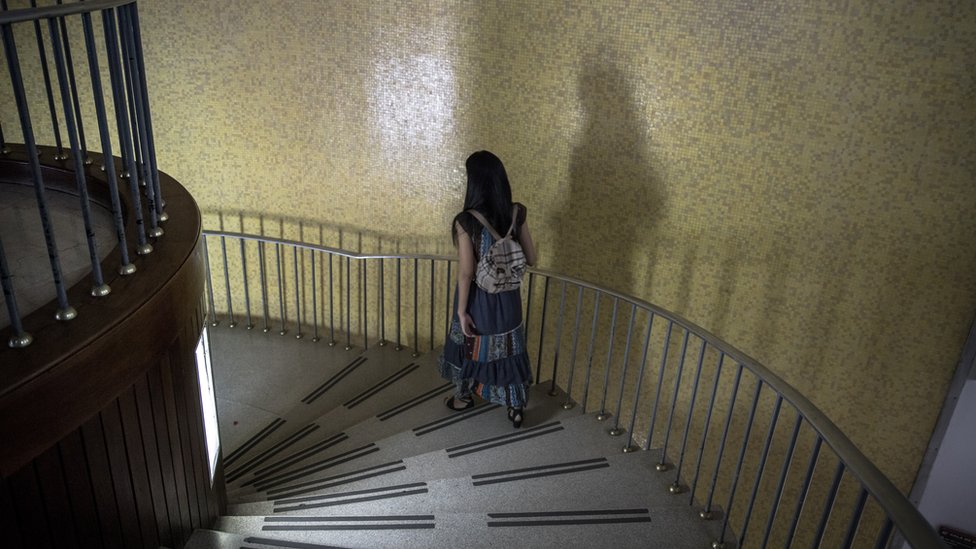
How the current political conflict will end
I do not know if I’m arrogant, but I think nothing serious is going to happen. The Latin American left has a fetish with the American invasion. Everyone believes that they (the Americans) will invade.
I think that the gringos (Americans) have interests here, they play a very important role, pressuring a lot, but in Venezuela, there are no deep hatreds like in Syria, in Libya, the Sunnis, and the Shiites.
We are not killing ourselves. There is a lot of intolerance. Before there was not so much, but we are not killing ourselves nor is it going to happen in the near future.
The exit (end to the crisis) must be electoral.
This article is a translation of the article by Daniel García Marco- Crisis en Venezuela: por qué aún soy chavista (y cómo creo que terminará la crisis política) – published by BBC News Mundo

